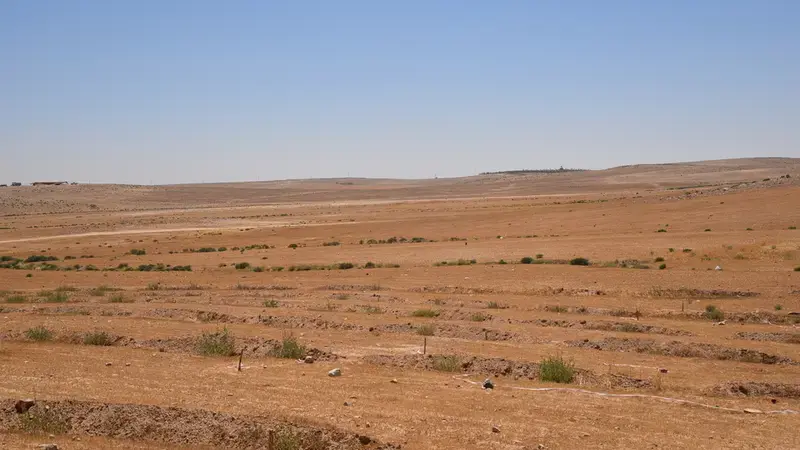‘Cactus choppers’ reduce work load for rural women

An ICARDA initiative that promotes cactus production in Tunisia has introduced a practical and cost-effective technology that is enhancing rural livelihoods and reducing the drudgery faced by many women producers.
Cactus plants are widespread in Tunisia, especially in the semi-arid and arid areas of the Center-West. In this region, over 600,000 hectares (ha) of mainly spineless cactus varieties are planted by individual farmers with the support of the country’s National Agricultural Research and Extension Services (NARES).
These varieties are well adapted to the climate, provide valuable supplementary feed during feed gap periods, and are a reliable source of water, containing up to 90% of this precious natural resource. The wider and improved use of cactus provides a sustainable solution for small and medium scale farmers in dry areas.
Cactus in Tunisia are usually used as supplementary feed during summer and autumn (July to November). They are cut with knives and transported on trailers to farms. It is here where farm employees, mainly women and children, cut them into smaller pieces to make cactus cladodes more palatable for small ruminants.
Given that chopping by knife is a risky, time-consuming, and labor-intensive practice, a locally-manufactured manual cactus chopper has been developed by a Tunisian enterprise in collaboration with NARES and ICARDA. An initiative – the ‘Red Meat Value Chain’ project - ordered and distributed 29 choppers to individual farmers and farmer associations to reduce workloads and make the use of cactus as a feed more attractive. One chopper remains at the regional NARES to serve as a demonstration model.
The 29 beneficiaries farm a combined 250 ha, or an average of 8.6 ha per farmer, with 62% of farmers having 5 ha or less under cactus production. The average beneficiary consumes some 115 tons of cactus cladodes every year, and cactus production serves as supplementary feed for approximately 3,000 small ruminants (about 100 per farmer household).
Reducing workloads
Tests have shown that using knives to cut cactus cladodes is time consuming, taking about three hours per ton. An average household will therefore use about 350 hours per year cutting cactus (seven hours per day results in 50 working days per year). The new ‘manual cactus chopper’ has a rotating blade which can reduce this workload by a third. For the average farmer this means 17 full working days.
Malika and Jannet Saabli are beneficiaries of the new chopper in Kasserine. Malika says: “We’ve been using cactus leaves to feed our sheep and goats for years. Usually we use knives to cut them into pieces. The spines and use of knives always cause wounds on our hands and make the work exhausting. Thanks to the chopper, we don’t cut our fingers anymore and have more time to spend on farming and household activities.”
When asked what they intend to do with the additional time, 95% of the farmers said they would intensify agricultural activities to increase production, as the availability of labor is a limiting production factor in rural Tunisia. Since the project is estimated to reach and support 150 families, the total impact could be approximately 2,500 gained working days per year.

A survey revealed that the 29 beneficiaries would not only use the chopper for their own family, but would also make it available for neighboring families or nearby members of their farmer association. Approximately 150 households (five per chopper on average) could benefit. For the video of the technology in action, please, click here.
Raising incomes
Farmers with high cactus production are also selling their surplus on the market. Depending on the season, non-chopped cactus is sold on average at 3 TD (1.2 USD) for 50 kg of fresh cactus cladodes. Chopped cactus has a market price of 5 TD for 50 kg. If you hire someone to chop, prices are about 2.5 TD per 50 kg.
The project intends to use this technology as an income generating activity. According to the majority of surveyed beneficiaries, this could work, but only if the chopper is electrified and is mobile to make it a one-man business. If a person chops 10 tons a day, a turnover of 50 TD is achievable. A modified transportable electrified cactus chopper has been requested to make this business work, create employment, and serve thousands of cactus and livestock producers in the dry areas of Tunisia.
The project is funded by the German Federal Ministry for Economic Cooperation and Development (BMZ).
